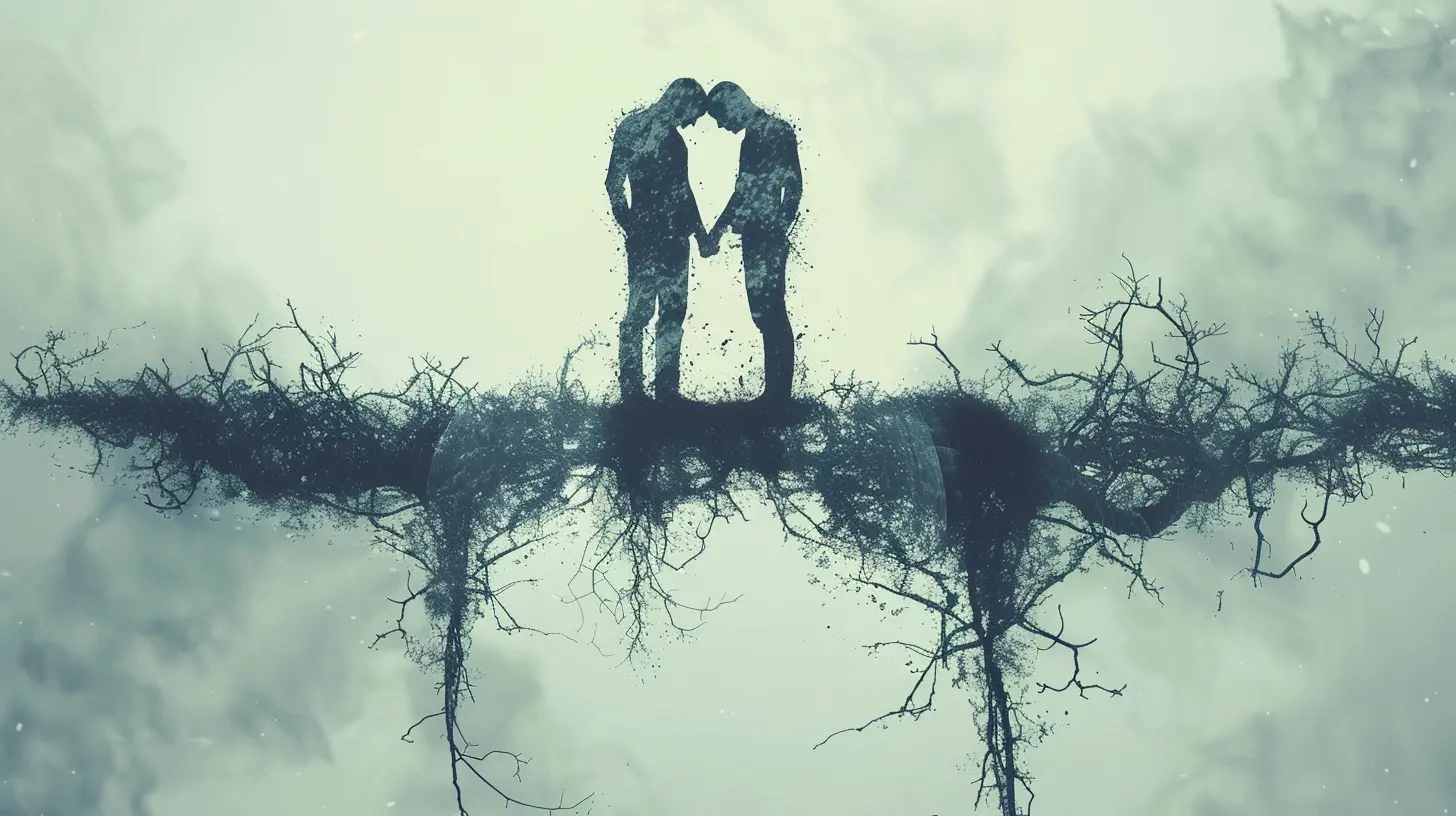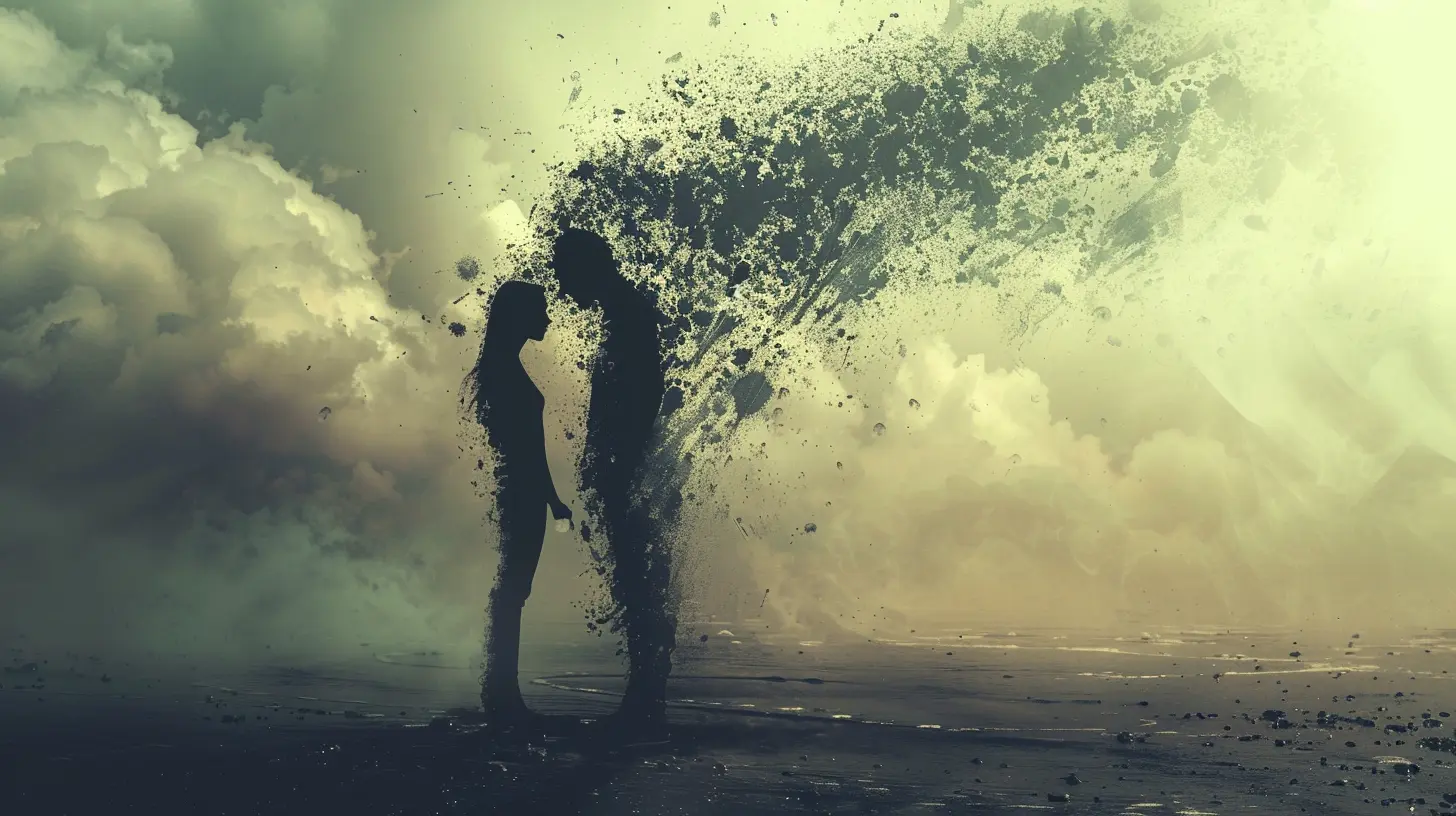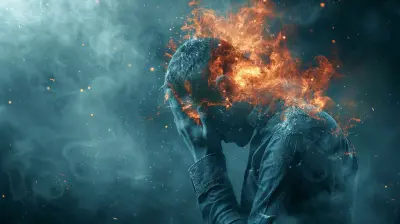Trauma Bonding: Why We Stay in Toxic Relationships
3 October 2025
Ever found yourself—or someone you care about—stuck in a relationship that feels like emotional quicksand? It's painful, confusing, and at times, even maddening. You know it's bad. Your friends tell you it's unhealthy. Even your gut whispers, “Run.” But your heart? It stays. Why?
Welcome to the deep, complicated world of trauma bonding—a psychological phenomenon that explains why so many people remain tethered to toxic relationships, unable to break free, even when the exit sign is flashing.
Let’s peel back the layers and take a long, sincere look into why love sometimes feels more like chains than wings.
What Is Trauma Bonding?
At its core, trauma bonding is a powerful emotional attachment formed between a victim and an abuser during repeated cycles of abuse and intermittent reinforcement.That’s a mouthful, right? Let's break it down.
Imagine you're on a rollercoaster. At first, you're pulled to the top—high on affection, promises, validation. Then, suddenly, the drop. Harsh words. Silent treatment. Manipulation. Just when you're about to unbuckle and leap, the ride lifts again—sweet words, apologies, and glimpses of the person you fell for. It's dizzying. And addictive.
This emotional whiplash creates a loop where pain and love become intertwined. Over time, the chaos gets normalized, and the bond gets harder to break.
The Psychology Behind the Bond
So, why does this happen? How can someone rationally justify holding onto someone who clearly causes harm?Here’s the twist: it’s not always about logic. Trauma bonding is deeply rooted in psychological survival patterns.
1. Intermittent Reinforcement: Love in Doses
Think about a slot machine. You don’t win every time, but when you do, the payoff feels massive. That inconsistency is what makes gambling addictive—and it works the same in toxic relationships.Abusers often alternate between cruelty and kindness. This unpredictable cycle of love and punishment keeps the victim constantly off-balance, craving the next “high” of affection.
It's not the consistency of abuse that forms the bond—it's the unpredictability of kindness.
2. Childhood Wounds and Familiar Chaos
Those early blueprints of love matter more than we think. If someone grew up in an environment where love was conditional or chaotic, they may unconsciously equate instability with intimacy.It’s not that people want toxic love. It’s that it feels familiar. Safe in its unpredictability. Like déjà vu of the soul.
3. Hope Becomes the Prison
This one’s heartbreaking. Victims often hold onto hope—that things will get better, that the “real” person they fell for will return.But that hope becomes the very thing that chains them. They confuse potential with reality. They hang in, thinking love can fix everything.
Spoiler: it can’t—at least not alone.
The Signs You’re Trauma Bonded
It’s tricky. Trauma bonding doesn’t wear a name tag. It sneaks in, masked as loyalty, love, or "destiny." But certain red flags can tell you what’s really going on.1. You Justify the Unjustifiable
They screamed at you in public? You say, “They had a hard day." They ignored you for days? “They're just overwhelmed.”The more you twist the narrative to protect them, the deeper the bond.
2. You Walk on Emotional Eggshells
If you're constantly second-guessing yourself, afraid of triggering their anger or disappointment, that's not love. That’s survival mode.3. You Feel Stuck, Powerless, or Addicted
Leaving should feel like freedom—but instead, you fear it. You feel addicted to the relationship, even when it’s hurting you. Like you need their validation to breathe.That’s trauma bonding whispering: “You won’t survive without them.”
Why It’s So Hard to Let Go
You’d think once someone realizes the relationship is toxic, they’d just leave, right?If only it were that simple. Trauma bonds are not just emotional; they’re biological. Each hit of love or abuse releases chemicals—dopamine, oxytocin, cortisol—that literally rewire the brain. It’s like getting hooked on emotional heroin.
And then there’s the fear. Of being alone. Of starting over. Of confronting the pain. The bond convinces people that the devil they know is safer than the unknown.
It’s not weakness—it’s wiring.
The Cycle of Abuse: The Loop That Hooks You
Let’s outline the classic abuse cycle:1. Tension Building – You feel the shift. Something’s off.
2. Incident – Emotional, verbal, or physical abuse erupts.
3. Reconciliation – Apologies. Excuses. Promises.
4. Calm (“Honeymoon” Phase) – Things seem better. They’re sweet, attentive, wonderful.
Then it starts again.
Each loop reinforces the bond. The longer you stay, the harder it gets to escape.
How to Break Free from a Trauma Bond
Here comes the tough love.Breaking a trauma bond doesn’t happen overnight. It’s a process—a war between your heart, your head, and your history.
But freedom? It’s absolutely possible.
1. Cut Contact: Rip Off the Band-Aid
You can’t heal in the same place you’re being hurt. Going no-contact or low-contact (especially if kids are involved) is often the first, crucial step.Yes, it’ll hurt. Yes, it’ll feel like withdrawal. But clarity comes in silence.
2. Therapy = Your Compass
This isn’t something you white-knuckle your way through. Trauma bonding is deep. A trauma-informed therapist can help untangle the web and rebuild your self-worth.Think of them as your emotional GPS in unfamiliar terrain.
3. Reconnect With You
Trauma bonds often erase our sense of self. Who were you before the relationship? What did you love? What made you feel alive?Write. Run. Paint. Scream into a pillow. Reclaim your voice.
4. Build a Support System
Abusers isolate. Healing requires community. Whether it’s friends, family, or support groups—stay connected. Especially on the days you feel tempted to go back.Why Some Bonds Take Longer to Break
Not all trauma bonds look the same. Some people break free quickly; others take years. There’s no shame in your timeline.Factors like financial dependency, children, cultural expectations, and psychological manipulation can slow the process. What matters is that you start.
One step forward, even if it’s shaky, is still movement.
Healing Isn’t Linear—But It’s Worth It
Some days you'll miss them. Some nights you'll question every decision. That’s normal.Healing isn’t a straight line. It curves, backtracks, and sometimes pauses. But with each step, the fog lifts. You start to breathe again. And one day, without even noticing, you’ll realize you’re free—not just from them, but from the story that kept you stuck.
Final Thoughts: The Truth Behind the Chains
Trauma bonding isn't about being weak. It’s not about stupidity or naivety. It’s about being human—wired for connection, programmed to seek love, even in the wrong places.The good news? Bonds can be broken. Healing can happen. And love—healthy, steady, safe love—does exist.
But before you can find it out there, you’ve got to nurture it in here—within yourself.
So if you're reading this and feeling a knot in your stomach, a spark of recognition, or the flicker of hope—hold onto that. It's not too late. You're not too broken. And your story isn't over.
In fact… it’s just beginning.
all images in this post were generated using AI tools
Category:
Psychological TraumaAuthor:

Ember Forbes
Discussion
rate this article
1 comments
Kova McClure
Absolutely love this article! It sheds light on the complexities of trauma bonding with such clarity. Understanding these dynamics is the first step to freedom! 🌟
October 22, 2025 at 2:58 AM

Ember Forbes
Thank you so much for your kind words! I'm glad you found the article helpful in understanding trauma bonding. 🌟


